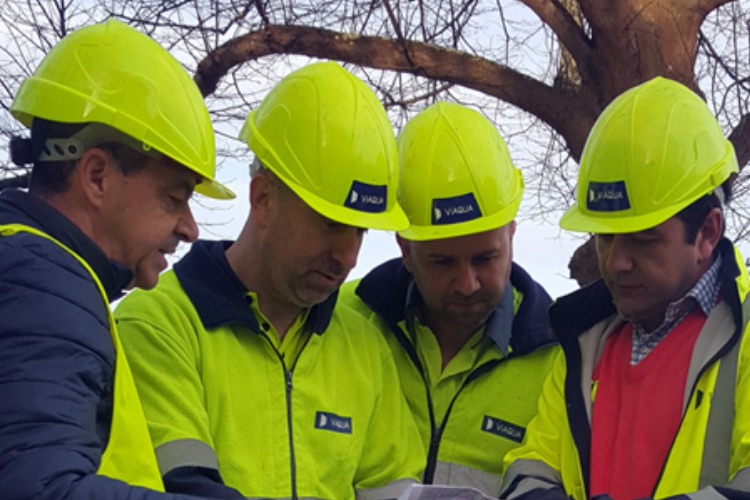'Raising workers’ awareness is the key to achieving the goal of zero work accidents’
Viaqua is a Galician company that operates in 48 towns in the 4 provinces of Galicia, meeting the needs of over 765,000 Galicians and employing 500 people

Since 2014, Viaqua has had a health and safety policy based on the gradual reduction of accident rates, minimising risks in all activities and working safely.
After 19 years working in the world of health and safety, Jose Manuel Castelao, head of Occupational Health and Safety at Viaqua, stresses that worker awareness and participation are the key to achieving the goal of zero work accidents.
- Viaqua is a company that operates in the four provinces of Galicia. How many kilometres do company employees travel each year? What is the rate of road accidents?
We are a company that requires a lot of travel, as we work in a widespread territory covering large cities and small villages. In the last three years, over 5 million kilometres have been travelled by 200 vehicles and we have managed to reduce accidents by 56%. The theme we have chosen this year on World Day for Safety and Health at Work is road safety, as, although accident rates are falling year after year, road accidents keep occurring and are now the main risk to workers.
- How can the number of accidents at work be reduced?
Various factors are involved: senior management commitment to work safety, the involvement of middle managers and, of course, the awareness and participation of all company staff. Our goal is to bring about a change in health and safety culture in Viaqua to achieve our goal of a much safer work environment.
- What kind of actions does Viaqua carry out to raise workers’ awareness of the importance of occupational health and safety?
In recent years, numerous projects and programmes have been conducted to raise workers’ awareness, such as: implementing Reglas que Salvan (Rules that Save), basic health and safety standards to prevent work accidents; regular meetings between managers and operators to discuss local health and safety problems known as the '15-minute chats'; the ‘Smart Protection’ programme, designed to reduce accidents by improving operational systems; safety visits by managers to company works and facilities; and worker training during 2017, which provided 2,472 hours of training classes.
Finally, in 2017, we started the Cultura Justa (Fair Culture) project, which aims to foster a cultural change towards a positive approach to health and safety, promoting spontaneous reporting of events and zero tolerance of safety breaches. The project ended up winning a prize at the 6th Escolástico Zaldívar 2804 awards given by the Fraternidad-Muprespa insurance company, in the category for large companies.
- What does it mean for Viaqua to receive this recognition?
We were delighted to receive the award; all recognition of improvements to our staff’s health and safety is very welcome and much appreciated. Our company’s motto is ‘Viaqua, caring for water’, to which I’d add: ‘and people’.
- Healthy practices are being increasingly promoted in business. Are you currently working on any initiatives in this field?
The workplace is the best place to protect employees’ health and well-being. This is why Viaqua seeks to promote a healthy lifestyle, favour well-being at work and foster worker participation. Along these lines, the corporate intranet has a platform for promoting healthy habits among staff, which can be accessed by all employees and which contains advice on food and nutrition, emotional health and physical activity.
- What challenges is Viaqua facing in the field of occupational health and safety in 2018?
Completing implementation of the conclusions from the Cultura Justa project and extending the Healthy Habits programme among workers are two of our main challenges this year. Also, continuing to include innovative technological, organisational and methodological improvements to achieve a safe zero-accident environment, with the help of all workers.